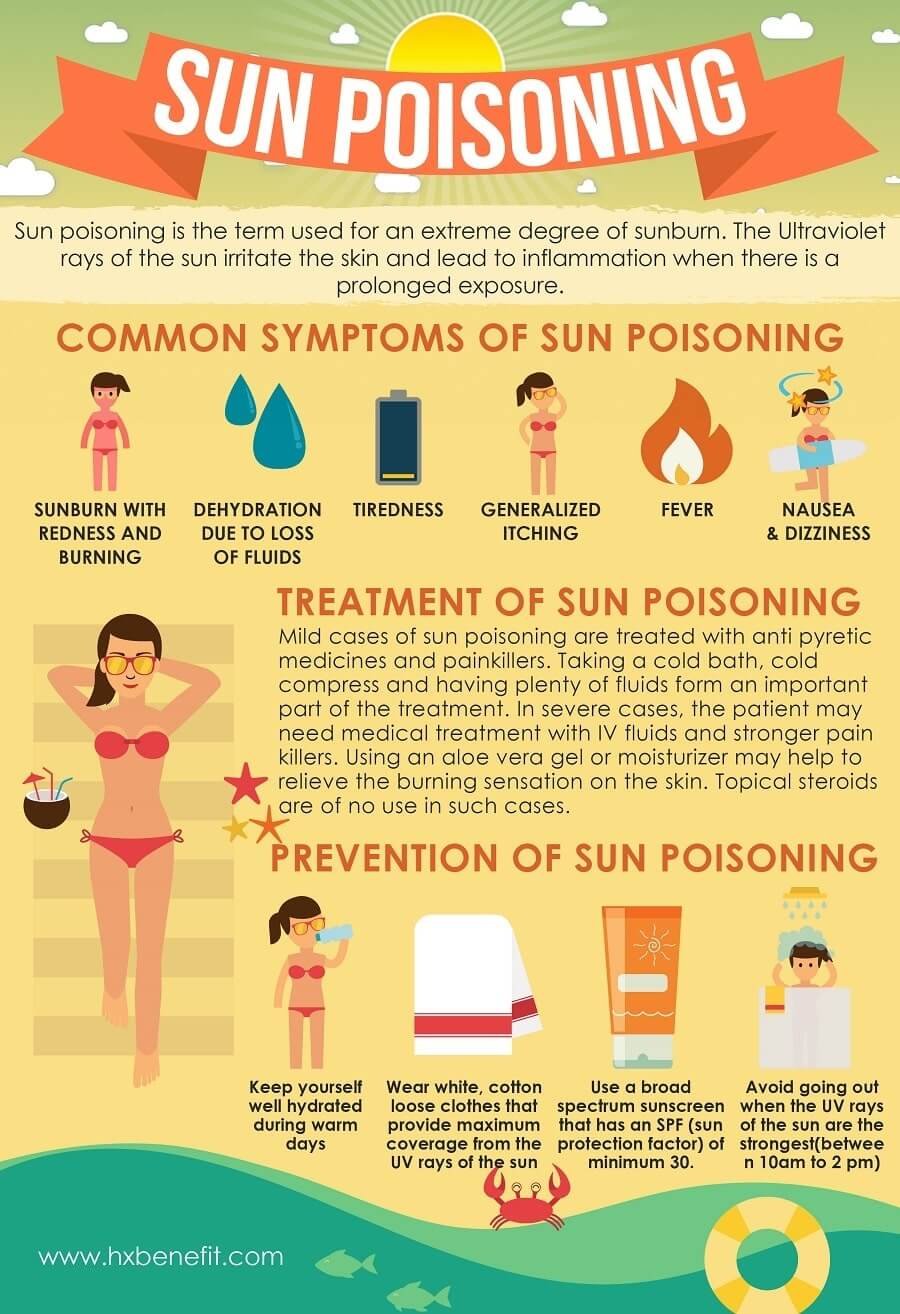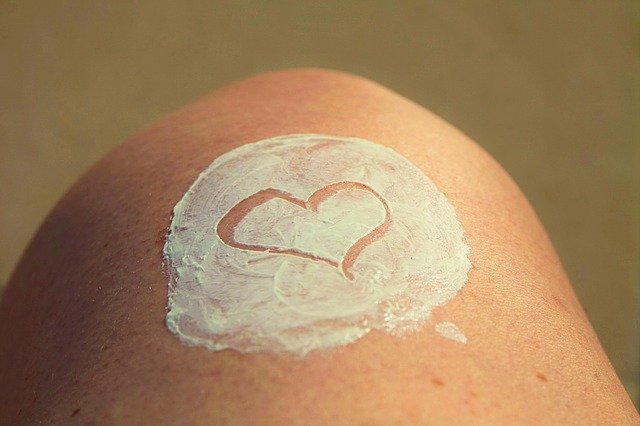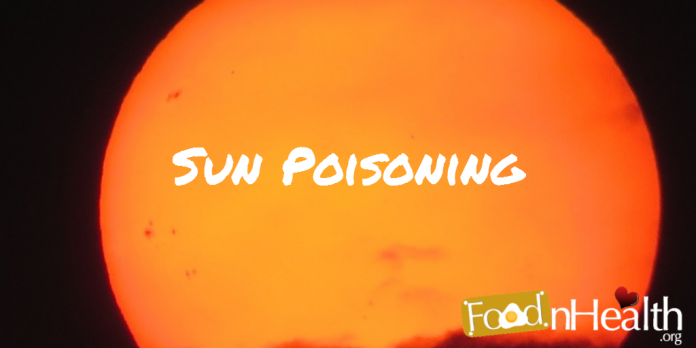Sun poisoning doesn’t mean you have been poisoned. It is an extreme case of sunburn, a burn that occurs when ultraviolet radiation inflames your skin. The excessive exposure to sun causes an allergic reaction in the form of development of itchy skin rash and the reddening of the skin.

Medically termed as solar dermatitis, it is most common during the summer months and in sunny areas. Those with fairer skin are most susceptible to this problem, this is because their body has not had a chance to produce melanin, the pigment responsible for protecting the skin from harmful ultraviolet radiations.
Sun Poisoning Symptoms
It takes only a few minutes to burn and, depending on the severity, it could result in sun poisoning blisters. The main symptom of sunburn is a rash where the skin reddens, dries up and peels off, additionally causing tenderness and itching of the area affected, formation of pus filled blisters, and pain in some cases. However, more severe symptoms of sun poisoning includes medical conditions such as headache,rapid pulse and breathing, nausea and vomiting, dizziness, mild or high fever accompanied with chills.
Sun Poisoning Treatment
If you have mild sun poisoning, there are a few home remedies that will help. Cold compresses made of equal parts milk and water, helps soothe the skin. Also, using cool (not cold) water when bathing and avoiding scented items like oils, deodorants and perfumes helps a lot. Using, aloe gel can help to reduce itching to take place. Take ibuprofen, aspirin to relieve pain.Drinking extra fluids for a few days is effective in preventing the harmful effects of sun poisoning.
The most important is to avoid the sun until you’re well, and take precautionary measures to avoid a similar situation.

If the sunburn covers a large part of the body, there is a lot of pain, or you experience the severe symptoms, seek immediate medical attention. If not treated early and properly, sun poisoning can increase the risk of developing skin cancer.
Sun Poisoning Prevention
Take preemptive measures to avoid sun poisoning. Cover your skin using protective clothing, like hats, sunglasses and long-sleeved shirts before going outside, it helps to block UV rays. Step outside only after applying broad-spectrum sunscreen of 30 SPF or higher to your whole body and reapply every two hours, or after you’ve been sweating or in water, and limit sun exposure between the hours when the sun rays are most powerful.

Summer means fun in the sun, but the sun also means that you have to protect your skin. Read on the infographic below to see how to keep yourself safe this summer, and what to do if you get burned:
For more Health information: https://www.hxbenefit.com/























